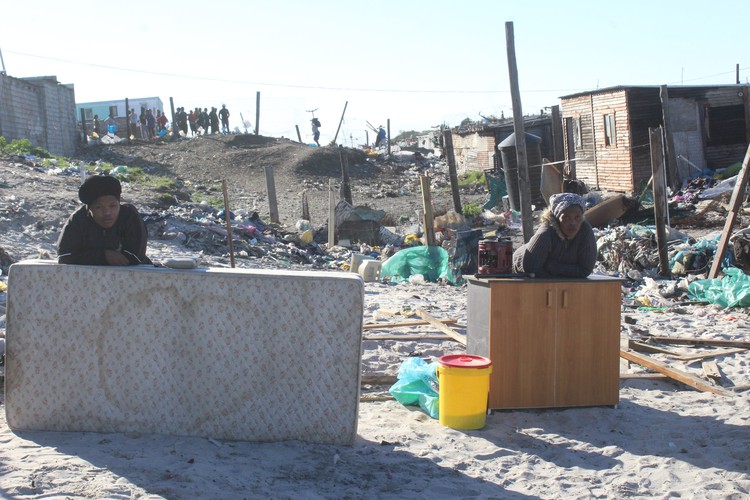Law enforcement moves against Vrygrond land occupiers
Residents claim they were not shown court order before their shacks were demolished
City of Cape Town law enforcement officials oversaw the demolition of dozens of shacks in Vrygrond in Cape Town’s south peninsula on Friday.
The demolition work was carried out by men wearing reflectors and not the usual red uniform of the City’s Anti-Land Invasion Unit. At the time of publication the City has not responded to questions, so we are unable to identify who carried out the demolition.
The occupied land is called Xakabantu by the residents. Based on residents’ testimony the land appears to have been occupied for six months. Aphiwe Loliwe, who lived in one of the shacks with her teenage daughter, said: “Why did they wait for six months before coming to demolish our homes if they knew we are here illegally?”
“We were renting and moved here because we were told there was an agreement between our leaders and the municipality,” she said. “My child is at school. She will come back and find that we no longer have a roof over our heads.”
Some of the occupiers burnt tyres in retaliation against the demolition.
As soon as law enforcement officers left, some people began rebuilding again.
Community leader Isaac Goliath said: “The municipality knows the leaders of this community but none of us were warned that a demolition would take place. We were not shown a court order when we asked for it.”
UPDATE at 16:00 on 27 May
Mayco Member for Human Settlements, Malusi Booi, confirmed that the men wearing reflectors were from the City’s Anti Land Invasion unit. “The City condemns land invasions on any land, be it private-, state-, provincial- or City-owned property, because these actions are illegal and consequently impact on service delivery to other residents. The City will continue to protect its land from being invaded. Land invasions affect us all.”
Support independent journalism
Donate using Payfast

Don't miss out on the latest news
We respect your privacy, and promise we won't spam you.
Next: Africa Day workshop in Dunoon tackles xenophobia
Previous: Vavi joins Grabouw farm workers march
© 2019 GroundUp.
This article is licensed under a Creative Commons Attribution-NoDerivatives 4.0 International License.
You may republish this article, so long as you credit the authors and GroundUp, and do not change the text. Please include a link back to the original article.

